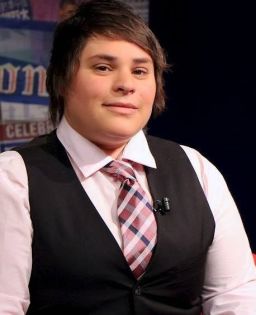Editor’s Note: Allison Hope is a writer whose work has appeared in The New York Times, Washington Post, CNN, Slate and elsewhere. The views expressed here are the author’s. Read more opinion on CNN.
News that beloved Harry Potter author J.K. Rowling is siding with a British researcher who made transphobic remarks is creating discord among LGBTQ and allied communities around the globe.

It all started when the researcher Maya Forstater lost a case she recently filed with a British tribunal after her contract with a European think tank was not renewed, she believed, because she made comments that sex is biological and cannot be changed. Rowling took Forstater’s side, tweeting to her 14 million followers Thursday, “Dress however you please. Call yourself whatever you like. Sleep with any consenting adult who’ll have you. Live your best life in peace and security. But force women out of their jobs for stating that sex is real? #IStandWithMaya #ThisIsNotADrill.”
The response has been fierce. Queer people who lovingly consumed the Harry Potter books and movies have been expressing heartbreak. Here’s just one example: “As a gay man that found safety in Hogwarts throughout my childhood - knowing that Trans people wouldn’t be able to have that safety breaks my heart.”
Comments like Rowling’s create a ripple effect; for groups that have long legislated against LGBTQ bodies, they provide a springboard to reinvigorate their base and perpetuate hate. For marginalized groups, they are another arrow that pierces our flesh, and which we must pluck out, work on healing our wounds and try to pick up the pieces and carry on with our lives. We will survive it, as we have time and time again, but they leave a scar.
The fact is, Rowling and Forstater are both entitled to their opinions about how to define sex, but those opinions are not only hurtful and harmful to the untold number of LGBTQ people who are Harry Potter fans, they also happen to be wrong.
Forstater’s opinions line up with the ideology of a group of women increasingly known as TERFs, or trans-exclusionary radical feminists. That group espouses equal rights for women, but doesn’t believe that transgender women are women. In other words, they believe that some women deserve equal rights, but not all. Rowling, in stating with plain language that she believes sex is binary and fixed, has made clear that she is also in line that camp.
What they, and indeed much of modern Western society gets wrong, is that sex may be biologically determined, but science tells us that there are more than two options. Our limited understanding of sex and gender comes from a mainstream medical assessment that looks only at external genitalia and then labels a baby within this binary system. We then socialize our babies and children based on that superficial view of sex and reinforce norms that we’ve decided are somehow intrinsic to those two categories; that’s the thing we call gender.
We decide thousands of moments of behavioral norms, from what colors someone can wear and how they should act, to whom they should love and what path they are allowed to walk in life, all based on their genitals at the time of birth.
The truth, based in science, is much more complex.
Biology isn’t binary – it is much more diverse than we acknowledge.
Sex and gender diversity are real, and it shouldn’t feel any stranger or more unnatural than the color of someone’s hair. We’ve just gotten into a terrible habit of policing people because they’re different. Someone may have an extra X chromosome or higher levels of estrogen than what we’ve assigned as male but have the secondary sex characteristics of a male. Someone else may have brain chemistry that matches what we’ve labeled as a female even though they were assigned male at birth based on their genitalia. Someone may have external organs that match one assigned sex, but internal organs that match the other. There are about as many people who don’t fit neatly into one box or the other as there are redheads.
In criminalizing and condemning people’s identities, we create an environment where you are pressured to conform or else you suffer the consequences. LGBTQ people, and transgender and gender non-binary people in particular, have disproportionately felt the stigma of not fitting neatly into the binary classification we’ve unduly imposed. We face discrimination at home, in the workplace and in every facet of civic life. Transgender people, and Black women in particular, face the highest levels of discrimination and violence across all touchpoints in everyday life.
Get our free weekly newsletter
Books and movies are a powerful escape from these struggles of real life. For LGBTQ people in particular, who navigate childhood with an increased likelihood of bullying and familial rejection, being able to get happily lost in a fantasy book series like Harry Potter can be a lifesaver. The top-selling books of all time continue to be eagerly consumed by children and adults worldwide. For many, these books are now coming off our shelves, the power it once held to provide relief and even a roadmap to finding our true selves, extinguished by Rowling showing her true, narrow-minded colors. This is not the first time Rowling has come under fire for her comments about being transgender. Future LGBTQ generations who find this hurtful may have to find another fantasy series to love.





